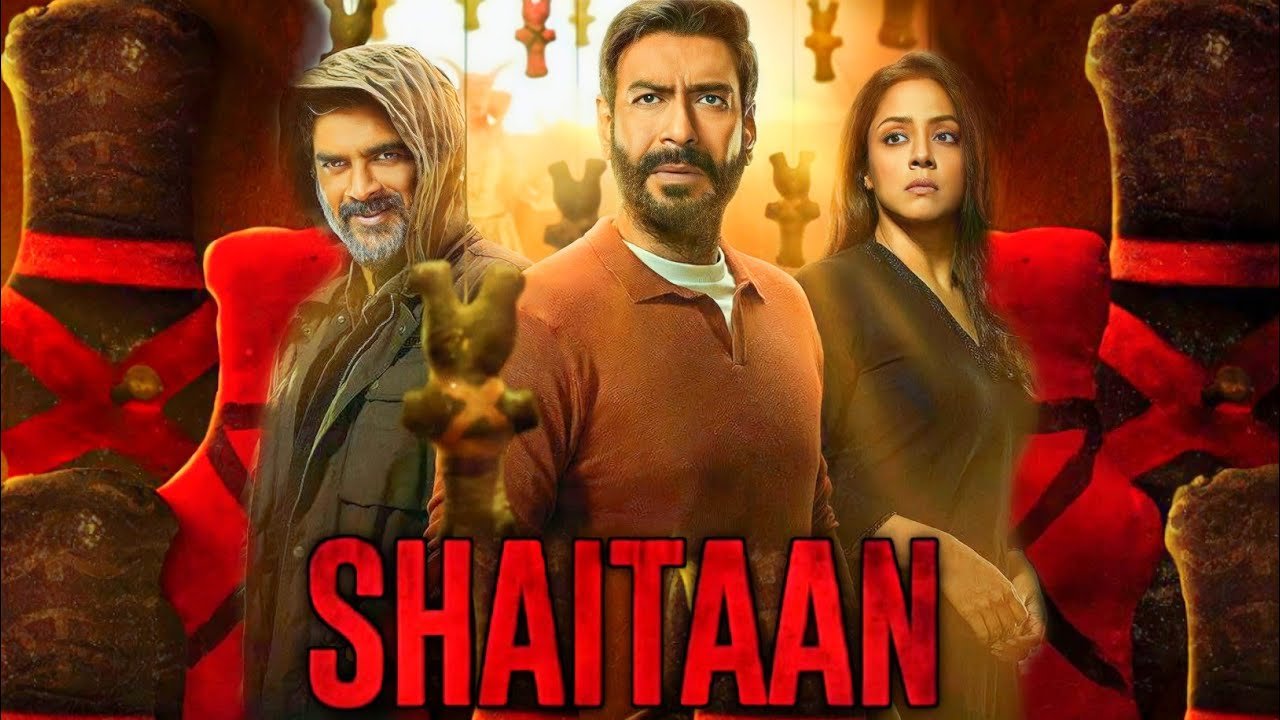Shaitan (2011) is an Indian neo‑noir crime‑thriller directed by Bejoy Nambiar in his feature debut and backed by Anurag Kashyap and others . It earned cult‑classic status, praised for its bold style, entourage of urban youth, and gritty storyline
Overview of Shaitan Movie

[table id=3 /]
🧩 Plot in Depth
A teenager Amrita (“Amy”, played by Kalki Koechlin) drifts into a reckless Mumbai lifestyle with four friends indulging in drugs, alcohol, and thrill‑seeking. Their joyride takes a dark turn when they accidentally run over a couple. A police constable coerces them into paying ₹2.5 million to cover it up. Unable to afford that, they hatch an even riskier plan: fake Amy’s kidnapping and demand ransom from her rich father.
As the ransom plot spirals, Inspector Arvind Mathur (Rajeev Khandelwal), suspended from duty for his moral stance, begins to untangle the truth. A tense cat‑and‑mouse drama unfolds, leading to violence, betrayal, and a startling climax.
🎬 Direction, Style & Visuals
-
Visual Style: Renowned for sleek, atmospheric cinematography. Director Nambiar and cinematographer R. Madhi used slow‑motion shots, vibrant framing, and kinetic camera work to craft a stylish, uneasy tone.
-
Pacing: Critics adored the film’s tight editing and pace, though some felt the stylistic flair overshadowed substance.
🎭 Performances
-
Kalki Koechlin as Amy: Delivers a raw, haunting performance rooted in trauma and youth rebellion.
-
Rajeev Khandelwal as Inspector Mathur: A grounded counterpoint to the chaos, his integrity and restrained intensity anchor the narrative.
-
Ensemble Cast: Gulshan Devaiah, Shiv Panditt, Neil Bhoopalam shine as Amy’s friends, creating a believable, disturbing clique.
🗣️ Reception
-
Positive: Critics praised its originality, cinematography, editing, and performance.
-
Mixed: Some noted style over substance—excessive slow-mo, inconsistent tone, predictability in the second half.
-
Negative: A few felt the screenplay was weak or characters unconvincing .
-
Rotten Tomatoes: 73% critics, 100+ audience ratings, though based on few reviews.
🎯 Overall Verdict
-
Strengths: Bold visuals, stylish editing, strong performances, atmospheric music—capturing darker youth culture.
-
Weaknesses: At times over‑stylized, uneven pacing, occasional plot contrivance.
Should you watch it?
If you’re drawn to neo‑noir, edgy cinema that prioritizes mood and aesthetics over tight narrative, this is a standout in modern Hindi film. But if you prefer tightly plotted, character-driven stories, you might find it rough around the edges.
🎬 Full Summary of “Shaitan” (2011)
The story begins with Amrita Jayshankar, known as Amy (played by Kalki Koechlin), a disturbed teenage girl who recently returned from the U.S. to Mumbai. She suffers from traumatic memories of childhood abuse by her mentally ill mother. She’s living with her emotionally distant father and stepmother and feels isolated, misunderstood, and angry.
To escape, Amy befriends a group of hedonistic upper-class youth:
-
Dash (Gulshan Devaiah): Their manipulative ringleader.
-
KC (Shiv Panditt): Brash and impulsive.
-
Zubin (Neil Bhoopalam): Level-headed, the quiet one.
-
Tanya (Kirti Kulhari): Dash’s girlfriend, fashion-conscious and cynical.
The group parties hard drugs, alcohol, clubbing, reckless behavior. Their scenes are stylized with techno music, slow-motion, neon lights, and shaky camera work, creating a dreamlike, chaotic vibe.
🚗 The Accident – Beginning of the Downfall
After a night of wild partying, they’re speeding through the streets in Zubin’s car. A tragic accident occurs: they hit and kill two people on a bike.
Dash panics and insists they flee. Rather than report the crime, they cover it up and abandon the car.
Later, a corrupt cop, Inspector Malwankar, tracks them down and blackmails them. He demands ₹2.5 million to bury the case.
💸 Fake Kidnapping Plan
Unable to raise the bribe money, Dash proposes a crazy idea: fake Amy’s kidnapping and demand ransom from her wealthy father. Amy, eager for rebellion and feeling unloved by her father, agrees.
They stage a fake kidnapping, tie Amy up in a shady lodge, and call her father for ransom.
But things start to unravel:
-
The group fights over details.
-
Amy begins losing grip on reality, haunted by her mother’s ghost and guilt.
-
Tension grows within the gang—Tanya feels used, Zubin wants out, KC becomes paranoid.
🚓 Enter Inspector Arvind Mathur
Parallelly, Inspector Arvind Mathur (Rajeev Khandelwal), a morally upright cop, is under suspension for slapping a politician’s son. He’s assigned back to active duty just as the kidnapping case breaks.
Mathur senses that something is off the “kidnappers” sound amateurish. He starts investigating and slowly peels back the layers of the scheme.
🔥 Everything Falls Apart
Meanwhile:
-
Amy escapes captivity in a mental breakdown and wanders the city.
-
Tanya is accidentally shot and killed during a confrontation at a hideout.
-
KC, fearful and enraged, turns against Dash and tries to flee with the ransom money.
Dash becomes increasingly unstable obsessed with power and control. He kills KC in a fit of rage.
The gang is now falling apart. Zubin disappears. Amy is eventually found and taken into psychiatric care.
🕵️ The Climax – Truth Comes Out
Inspector Mathur connects the dots:
-
He confronts Amy’s father.
-
Tracks down Dash at a construction site where a final shootout happens.
Dash dies in a police encounter.
Amy, mentally broken, is admitted to a psychiatric hospital.
Mathur visits her in the final scene, perhaps seeking closure—not just for the case, but for his own moral journey through a corrupt system.
🧠 Themes Explored
-
Youth and alienation: Urban upper-class teens drifting into moral vacuum.
-
Trauma and abuse: Amy’s childhood trauma drives much of her behavior.
-
Corruption: Police extortion, political interference, and moral ambiguity.
-
Consequences of choices: One mistake spirals into a tragic avalanche.
💬 Final Message
The movie ends on a somber, reflective note. Despite all their privilege and power, the characters are morally bankrupt and emotionally hollow. The film suggests that in the chaos of modern life, the real “Shaitan” (devil) is inside us our unchecked impulses, greed, and pain.

